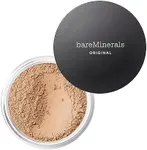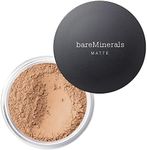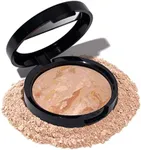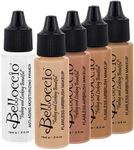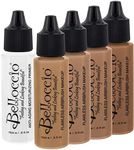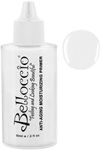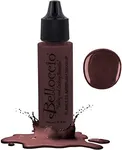Buying Guide for the Best Foundation Makeup
Choosing the right foundation makeup can be a game-changer for your beauty routine. The right foundation will enhance your natural beauty, provide a smooth base for the rest of your makeup, and help you achieve a flawless complexion. To find the best foundation for you, it's important to consider several key factors, including your skin type, desired coverage, finish, and shade. Understanding these specifications will help you make an informed decision and ensure that your foundation meets your unique needs.Skin TypeYour skin type is a crucial factor when selecting a foundation. Foundations are formulated differently to cater to various skin types, such as oily, dry, combination, and sensitive skin. For oily skin, look for oil-free or mattifying foundations that help control shine. For dry skin, opt for hydrating or moisturizing foundations that provide a dewy finish. Combination skin may benefit from a balanced formula that addresses both oily and dry areas. If you have sensitive skin, choose a foundation with gentle, non-irritating ingredients. Knowing your skin type will guide you to a foundation that complements and enhances your skin's natural characteristics.
CoverageCoverage refers to how much the foundation can conceal imperfections and even out your skin tone. Foundations come in light, medium, and full coverage options. Light coverage foundations provide a natural, sheer finish and are ideal for those who prefer a more minimal makeup look or have relatively clear skin. Medium coverage foundations offer a balance between a natural look and the ability to cover minor blemishes and unevenness. Full coverage foundations are designed to cover significant imperfections, such as acne scars or hyperpigmentation, and provide a more polished, flawless finish. Consider your skin's needs and your desired look when choosing the level of coverage.
FinishThe finish of a foundation determines how it looks on your skin once applied. Common finishes include matte, dewy, and satin. A matte finish is shine-free and often preferred by those with oily skin or those who want a long-lasting, velvety look. A dewy finish provides a radiant, glowing appearance and is ideal for dry or mature skin, as it adds a touch of luminosity. A satin finish strikes a balance between matte and dewy, offering a natural, skin-like appearance that works well for most skin types. Your personal preference and the look you want to achieve will help you decide which finish is right for you.
ShadeChoosing the correct shade is essential for a natural-looking foundation. The right shade should blend seamlessly with your skin tone, without creating a noticeable line between your face and neck. To find your perfect shade, identify your undertone (cool, warm, or neutral) and test the foundation on your jawline or wrist in natural light. Cool undertones have a pink, red, or blue hue, warm undertones have a yellow, golden, or peach hue, and neutral undertones are a mix of both. Many brands offer a wide range of shades to accommodate different skin tones and undertones. Take your time to test and match the foundation to ensure it complements your complexion.
FormulationFoundation formulations come in various forms, including liquid, powder, cream, and stick. Liquid foundations are versatile and suitable for most skin types, offering buildable coverage and a range of finishes. Powder foundations are great for oily skin, providing a matte finish and easy touch-ups throughout the day. Cream foundations offer a rich, hydrating formula that works well for dry or mature skin, delivering a smooth, full-coverage finish. Stick foundations are convenient for on-the-go application and provide buildable coverage with a creamy texture. Consider your skin type, lifestyle, and application preferences when choosing the formulation that best suits your needs.

